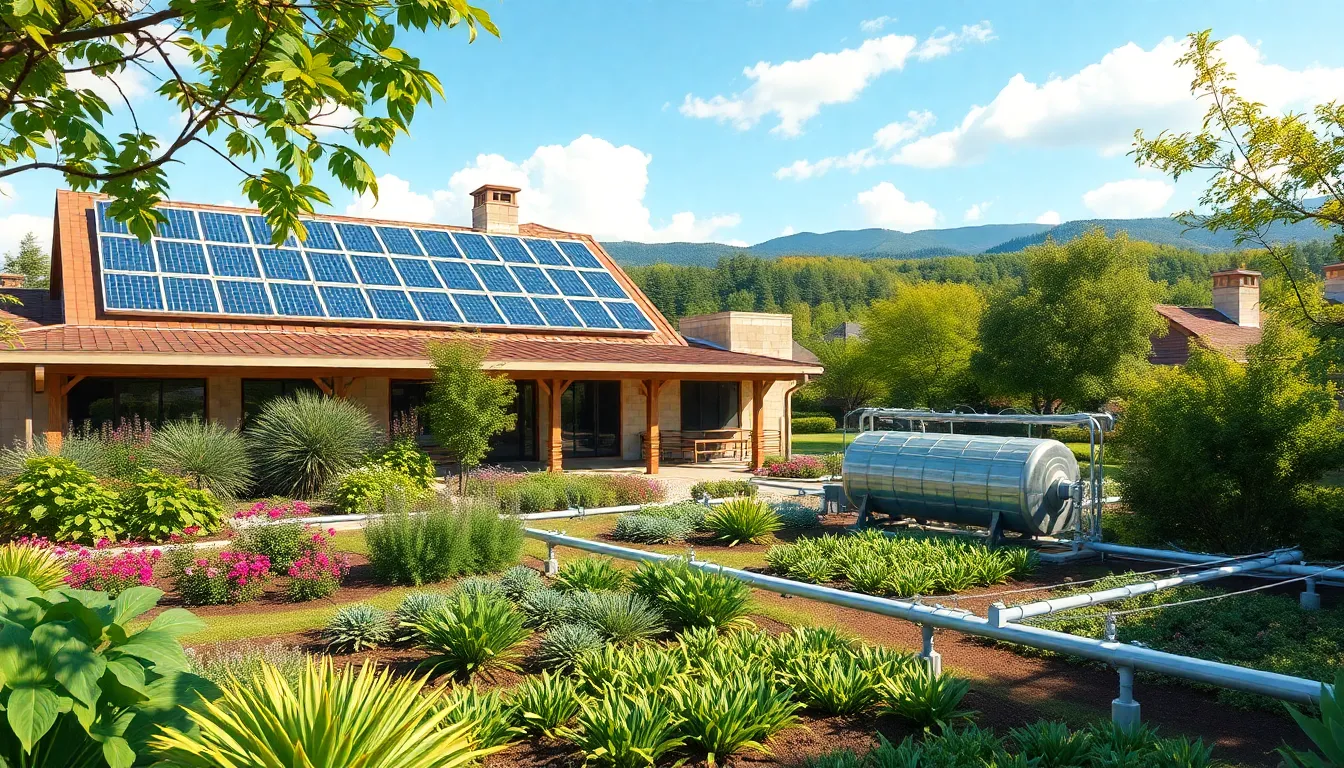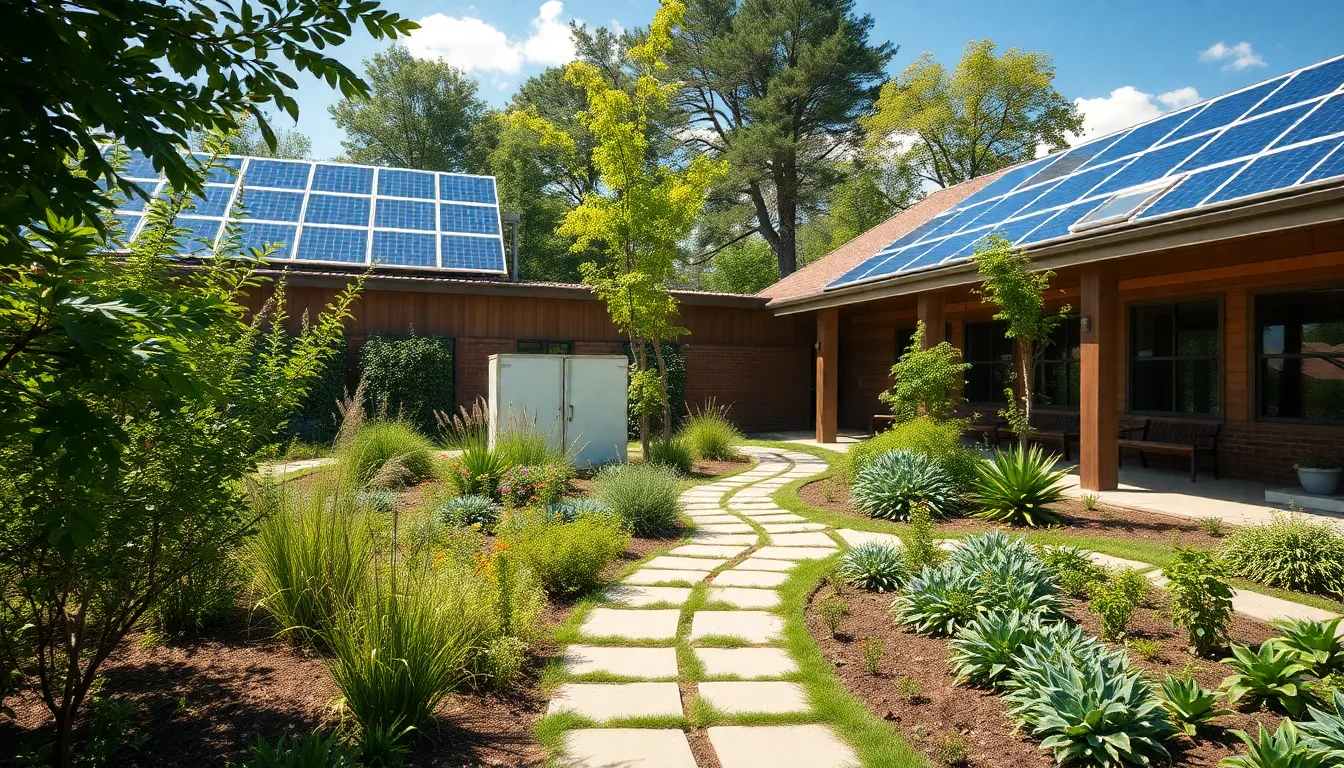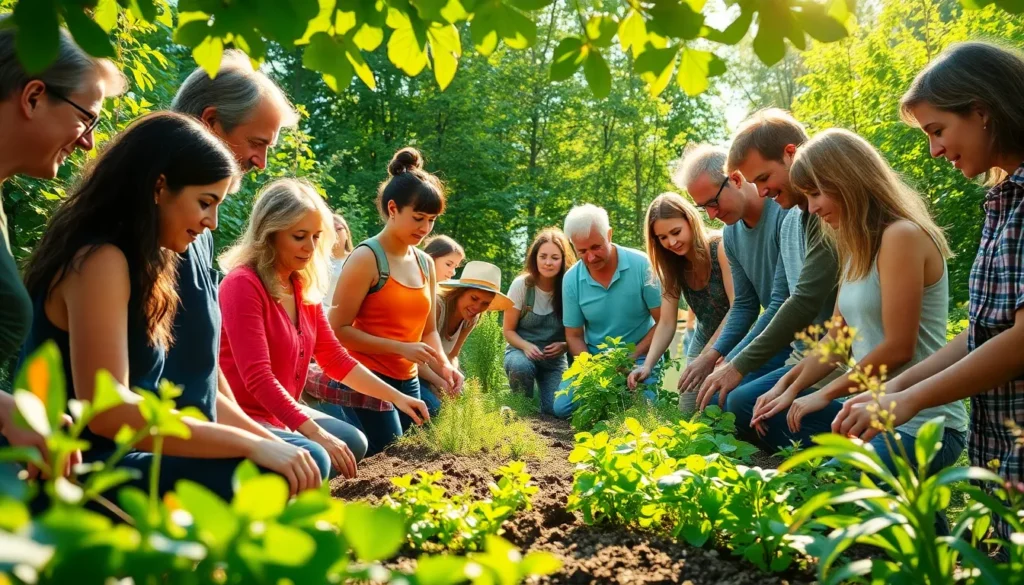Nestled in the heart of a vibrant community, the Omega Center for Sustainable Living isn’t just another eco-friendly spot; it’s a sanctuary for those who believe that saving the planet can be as refreshing as a cool breeze on a hot day. Imagine a place where green living isn’t just a trend but a way of life, where every corner whispers, “Hey, let’s hug a tree together!”
Table of Contents
ToggleOverview of Omega Center for Sustainable Living
Omega Center for Sustainable Living serves as a hub for education on sustainable practices. Located within a vibrant community, it fosters a deep commitment to eco-friendly living. Visitors experience hands-on workshops, which cover topics like organic gardening, renewable energy, and waste reduction. Educational programs feature diverse methods, allowing individuals to learn about sustainable choices in daily life.
The center promotes a holistic approach to sustainability. It integrates concepts of health, well-being, and environmental awareness. People from varied backgrounds engage in activities that inspire conscious living. Organic farming techniques and permaculture principles form a core part of the curriculum.
Facilities at Omega enhance the learning experience. Eco-design elements characterize the buildings, showcasing solar energy and rainwater harvesting systems. Spaces host events such as lectures and seasonal festivals that celebrate local ecology. Participants often report transformative experiences, driven by the center’s emphasis on connection to nature.
Community involvement thrives at Omega. Partnerships with local farms and businesses strengthen ties and promote sustainability beyond the center’s grounds. Attendees often find themselves part of a network that encourages ongoing eco-conscious practices. The center’s influence extends, creating ripples of positive change across wider regions.
Sustainable Practices at Omega Center


Omega Center embodies sustainability through various practices that promote environmental stewardship within the community.
Energy Efficiency Initiatives
Energy efficiency serves as a cornerstone of Omega Center’s operations. Solar panels generate a significant portion of the center’s electricity, demonstrating a commitment to renewable sources. LED lighting illuminates the facilities, reducing energy consumption while enhancing visibility. Workshops that educate participants on energy-saving methods empower individuals to implement similar strategies at home. Additionally, passive design elements, such as optimized natural lighting and insulation, create comfortable indoor environments while minimizing energy use.
Water Conservation Strategies
Water conservation strategies play a crucial role in Omega Center’s sustainability efforts. Rainwater harvesting systems collect and store rainwater for irrigation, ensuring minimal environmental impact. Drip irrigation systems efficiently water gardens, cutting water waste while maintaining healthy plant growth. Native and drought-resistant plants in landscaping require less water and thrive in the local climate. Education on water-saving techniques during workshops equips attendees with practical skills for personal use, further promoting responsible water usage throughout the community.
Educational Programs Offered
The Omega Center for Sustainable Living provides a variety of educational programs designed to engage and empower individuals in sustainable practices.
Workshops and Retreats
Workshops focus on practical topics such as organic gardening, composting, and renewable energy. Attendees gain hands-on experience in these areas, learning techniques that promote eco-friendly living. Retreats combine relaxation with education, offering immersive experiences centered on sustainability. Participants explore the center’s natural environment while engaging in discussions and activities that deepen their understanding of sustainable practices. These programs encourage collaboration and foster a sense of community, creating lasting connections among like-minded individuals.
Community Outreach Efforts
Community outreach efforts expand the center’s influence beyond its grounds. Collaborations with local organizations and businesses strengthen regional sustainability initiatives. Educational programs open to the public provide opportunities for individuals of all ages to learn about ecological practices. Events such as clean-up days and sustainability fairs involve community members directly, reinforcing the importance of collective action. These efforts not only raise awareness but also inspire ongoing commitment to environmental stewardship in daily life.
Visitor Experience at Omega Center
Visitors to the Omega Center for Sustainable Living engage in a unique experience focused on education and community building.
Guided Tours and Activities
Guided tours offer insights into the center’s eco-friendly practices. Participants explore the landscape designed to promote biodiversity and sustainability. Workshops on organic gardening and renewable energy provide hands-on learning opportunities. Seasonal festivals celebrate local ecology and connect visitors with nature. Engaging lectures hosted by experts deepen understanding of sustainable living. Each activity encourages interaction, fostering a spirit of community among attendees.
Accommodations and Amenities
Accommodations at Omega prioritize eco-conscious design and comfort. Visitors find cozy lodges equipped with sustainable materials and energy-efficient appliances. Shared kitchens promote communal cooking and dining experiences. The center’s amenities include spaces for meditation and reflection, allowing guests to unwind. Outdoor areas feature gardens and walking paths that encourage exploration. Each aspect of the facility supports a harmonious connection to the surrounding environment.
Impact of Omega Center on Sustainable Living
Omega Center for Sustainable Living significantly contributes to sustainable practices in its community. Its emphasis on education fosters environmental awareness among visitors, instilling a sense of responsibility toward the planet. Workshops on organic gardening, renewable energy, and waste reduction inspire participants to adopt eco-friendly habits at home.
Energy efficiency remains a core focus. Solar panels provide substantial electricity, while LED lighting and passive design elements improve overall energy savings. Attendees learn about these energy-saving methods, enabling them to implement similar practices in their living spaces.
Water conservation initiatives also play a crucial role. Rainwater harvesting systems capture and store water for irrigation, promoting responsible usage. Landscaping features native plants that require minimal watering, minimizing resource waste further.
Community outreach extends the center’s impact. Collaborations with local farms and businesses foster a network of eco-conscious practices beyond its grounds. Public programs enhance engagement, such as clean-up events that invite residents to actively participate in sustainability efforts.
The visitor experience emphasizes connection to nature. Guided tours highlight the center’s sustainable practices in a tangible way. Open spaces for meditation and exploration allow guests to appreciate the environment while building relationships with like-minded individuals.
Accommodations at the center provide eco-conscious choices. Cozy lodges constructed with sustainable materials offer mindful living options, while communal kitchens promote shared meals and community bonding. Seasonal festivals create opportunities for celebrating local ecology, reinforcing the center’s mission to inspire and empower individuals towards sustainable living habits.
The Omega Center for Sustainable Living stands as a beacon for those seeking to embrace eco-friendly practices in their daily lives. By fostering a sense of community and providing hands-on education, it empowers individuals to make meaningful changes. The center’s commitment to sustainability serves not only its visitors but also the broader environment, encouraging a collective shift toward responsible living. As more people engage with its programs, the potential for positive impact grows, inspiring a more sustainable future for all.






